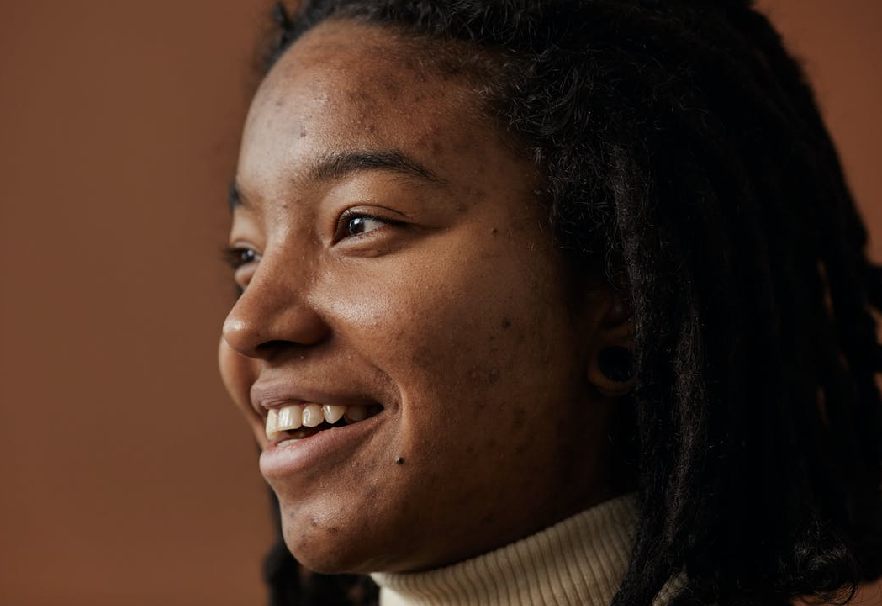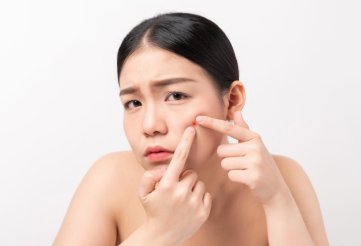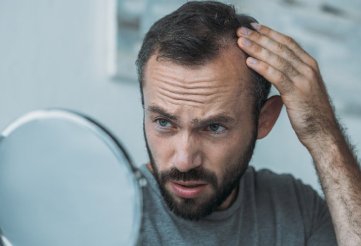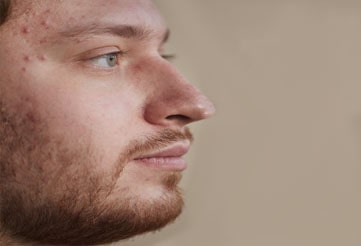ACNE SCAR: Causes and Treatment

09 Jul 2021 / Posted by clinic skin essence
What is ACNE SCAR?
Any pit/ depression/ irregularity on the surface of the skin formed after healing of active acne is known as acne scar. It may also result in loss of smooth texture of the skin. It can affect almost 30% of cases of active acne.
Why acne scar gets formed?
Acne scar is a consequence of active acne. The reasons for acne scarring can be:
- Delay in the treatment of acne: Delay in the treatment of active acne can lead to long-standing acne which can lead to acne scarring after it heals.
- Deep nodules: Grade 3 and 4 acne (deep nodules) and hormonal acne associated with some cases of PCOD can lead to acne scarring.
- Self-medication, improper treatment or incomplete treatment of active acne can also lead to acne scarring.
- Picking, squeezing and scratching of active acne can also lead to acne scarring and pigmentation.
Difference between Pigmentation and Acne scarring.
Pigmentation is any flat mark/ spot, rarely can be slightly depressed which develop post-acne and usually can pinkish/ reddish, brownish/slightly blackish or whitish.
Acne scar as we have discussed, they are pit, depression or any surface irregularity. Acne scars can be classified into 5 types:
- ICEPICK: They are deep, narrow and pitted scars.
- ROLLING: They are broad depression with sloping edges.
- BOXCAR: They are broad depression with sharply defined edges.
- Hypertrophic: These are thick and lumpy scars.
- ATROPHIC: These are thin flat or depressed scars.
Why is the need for treatment in case of scars?
The scar is fixed and permanent. So, it will not go on its own. Some superficial scars can improve with time but that improvement is slow and also it's quite less.
Secondly, the indication to treat acne scars is cosmetic and usually not medical. So, if it's affecting you, your mental balance and your personality, then you should visit your dermatologist and take treatment.
Factors to consider while treating acne scars?
During treatment, a dermatologist has to consider a number of factors like
- Type of scar
- Number of scars
- Size of scar
- Scar surface
What to expect during treatment of acne scars?
When someone comes to the OPD for an acne scar consultation, he/ she usually says, Doctor! Will this scarred area will be looking like my normal skin. So, it's not like ALL or NONE PRINCIPLE. It’s a combination of scars in almost every patient and results depend upon the type of scar, depth, number and size. So, there will be an improvement in scars and it cant be 100?cause we are not replacing scarred skin with normal tissue.
There will be new collagen formation under the surface of the skin and it leads to elevation of scar and textural change also.
The number of sessions required will be multiple and it's not a single session treatment.
Are treatments available in case of acne scars?
So as we discussed there is a combination of scars in almost every patient, so we have to do multiple or combination of treatments to achieve the maximum result.
- Chemical Peeling
- Dermapen
- CROSS(Chemical Reconstruction of Skin Scars)
- Subcision
- RF Subcision
- Fractional CO2 Laser
- MNRF(Microneedling Radio Frequency)
- Growth Factor Therapy
- Dermal Fillers
- Scar revision surgeries like punch floatation, punch excision and grafting, and punch excision and closure.
Advantages of MNRF over Fractional CO2 LASER
Redness and swelling will be less in the case of MNRF as compared to Fractional CO2 laser.
So downtime will be less in MNRF.
Surface changes including grid or square pattern will be less in MNRF.
Chances of pigmentation are usually less in MNRF.
Results in deep scarring can be better than Fractional CO2 laser
Post-procedure Care
There will be some swelling and redness which will vary in severity and it depends upon which procedure is done.
Follow the medicines which are prescribed to you by your dermatologist including antibiotics, pain killers etc.
You can do an ice application after returning home.
Avoid sun exposure and cover your face while going outside. Use sunscreen as prescribed by your dermatologist.




